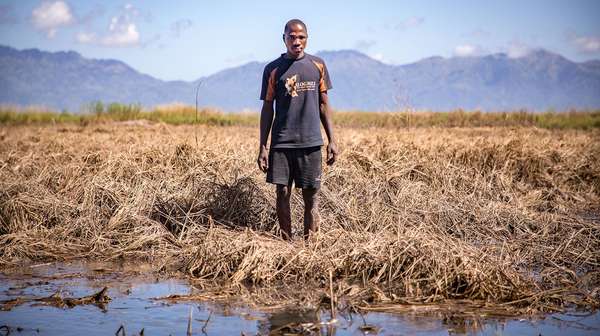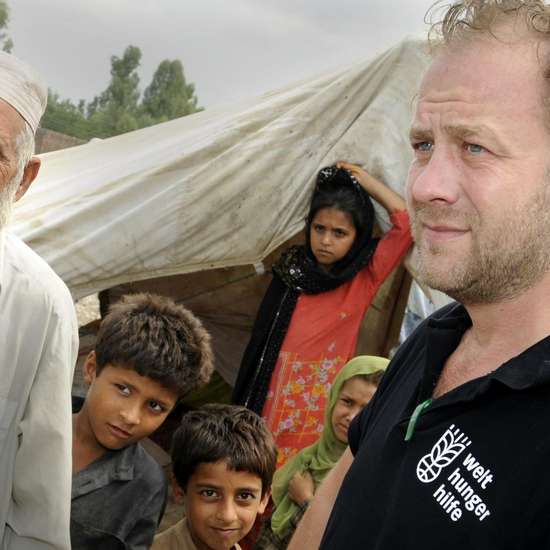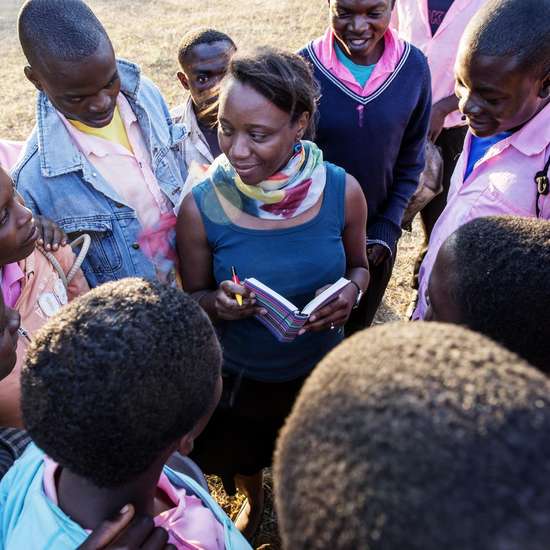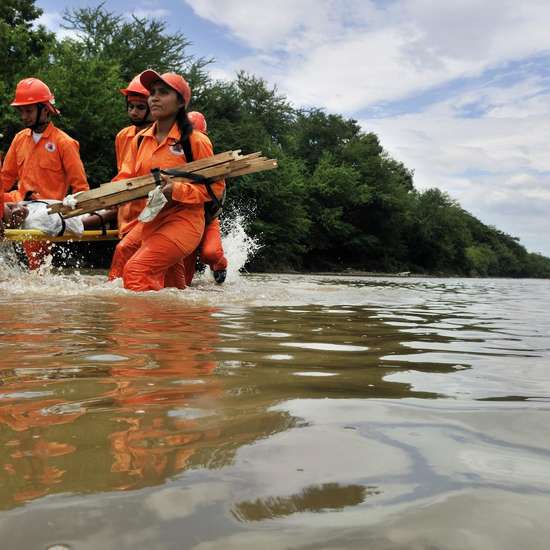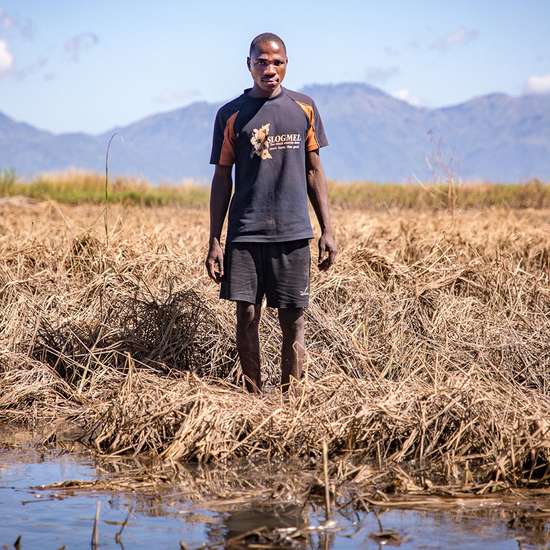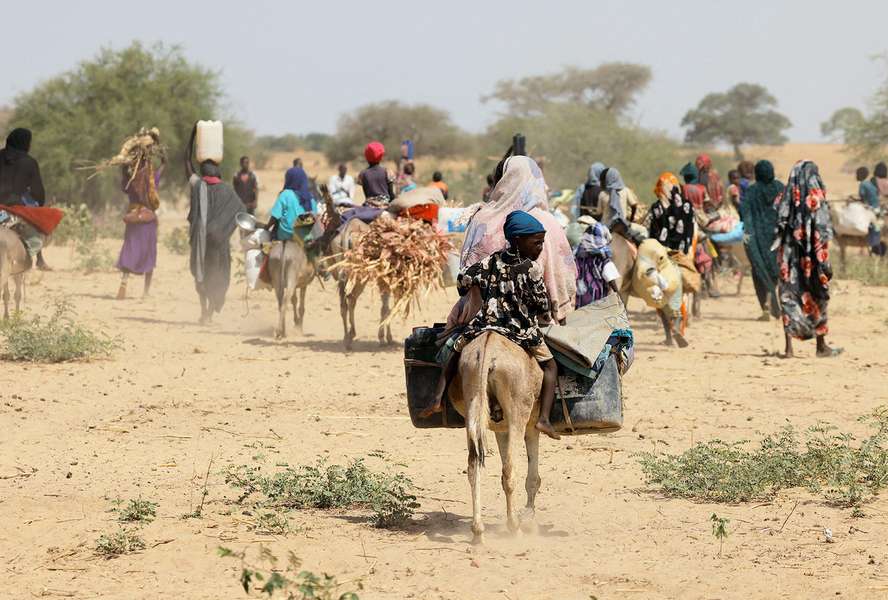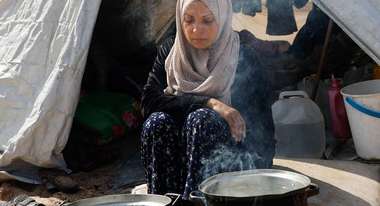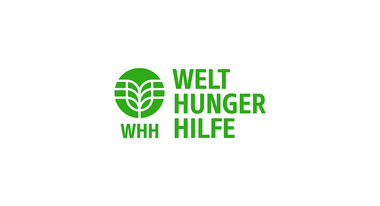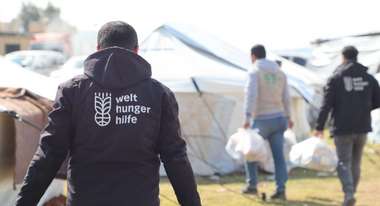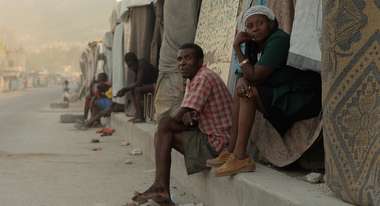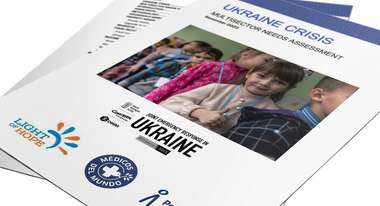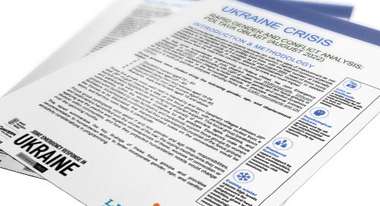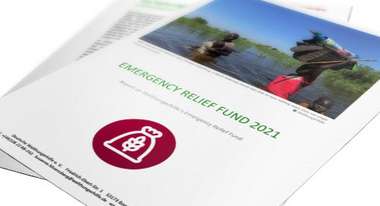Act and intervene based on forecasts and predictions before crises and disasters lead to hunger, destruction and death.
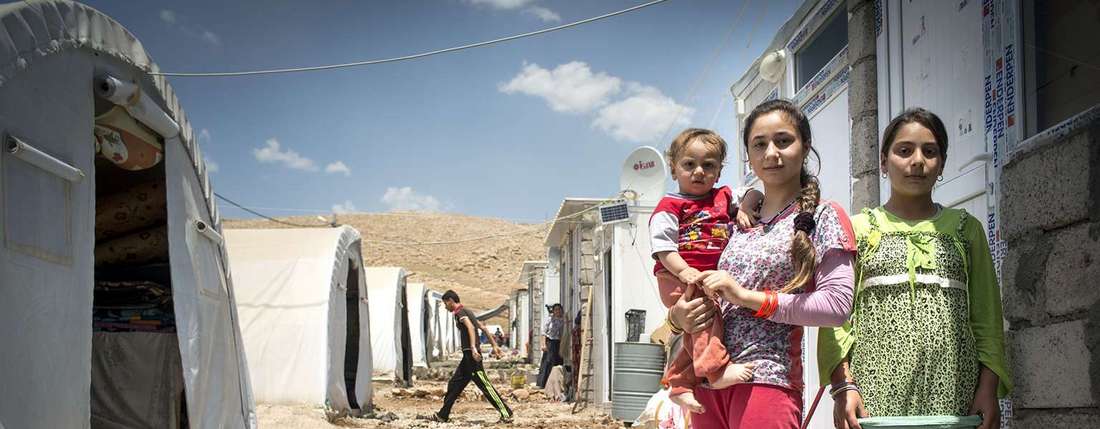
Humanitarian Assistance
Welthungerhilfe (WHH) follows a dual approach in fighting hunger and malnutrition in regions affected by crises: linking immediate relief in emergency situations and long-term development programs for sustainable change.
Challenge
Food security issues in rural communities are compounded by the threat of armed conflicts, natural disasters and climate change. Providing humanitarian assistance since 1962, WHH understands there is often no linear sequence of emergency aid, reconstruction and post-crisis development.
We regularly see both substantial progress in the long-term eradication of hunger and the need for humanitarian assistance in the same country at the same time.
Our approach
WHH’s programs focus on anticipatory action and the nexus of relief, recovery, development, and preparedness. Strengthening communities’ resilience is our primary goal. We use detailed risk and threat analyses to predict extreme weather events and enable the timely launch of disaster response plans.
This form of disaster risk management allows us to boost preparedness in regions frequently affected by disasters and ensure we can implement relief measures quickly during a crisis – the Welthungerhilfe Emergency Response Team can be deployed within 48 hours to support our country offices after a disaster has struck. Our emergency relief operations concentrate on the immediate supply of food, water and hygiene, shelter, and other necessary provisions.
Transitioning into the recovery phase, our response shifts toward protecting and restoring livelihoods, thus contributing to reinstating longer-term food security. WHH post-disaster measures aim to improve communities’ physical, social, environmental, and economic conditions to prevent re-creating pre-disaster vulnerabilities and enhance their safety and resilience.
Our impact
WHH's work to assist the people affected by the July 2022 floods in Pakistan demonstrates our approach to humanitarian assistance. WHH and local partner organizations have carried out emergency relief measures in the provinces of Sindh, Balochistan, Khyber Pakhtunkhwa and Punjab. Furthermore, in the Rajanpur district, WHH has supported the development of community-level disaster preparedness in recent years. The resultant Union Council Disaster Management Committees are now helping with the flood relief, with WHH's support. As the flood water began to recede in September 2022 across all regions, WHH has also distributed seeds and tools to support small-scale agriculture and food security, and provided building materials to repair damaged houses.
A quick rollout of emergency relief was also required after several earthquakes shook southeastern Türkiye, near the border with Syria, in February 2023. In the days following, WHH was ready to distribute tents, hygiene items, and food. In Islahiye County in south-central Türkiye, for instance, WHH supplies fresh meals daily to up to 3,000 people. At the same time, WHH has been working with a broad network of European aid organizations to provide relief to people displaced by the ongoing war in Ukraine. We have adapted our measures depending on the needs of those affected by the conflict. For example, in regions where food is still available but is unaffordable to many, WHH has provided cash assistance. As part of our 2022/2023 winter aid program, we distributed cash to 16,000 households
In Malawi's largest refugee camp, most of the approximately 40,000 refugees come from the Democratic Republic of Congo, Rwanda or Burundi. The international community and the Malawian government provide these people little support. WHH has helped set up a care center for children with physical disabilities and/or learning difficulties in the camp. Since the center opened in March 2021, it has offered a wide range of activities that improve the lives of these children and provide support and training for parents.




